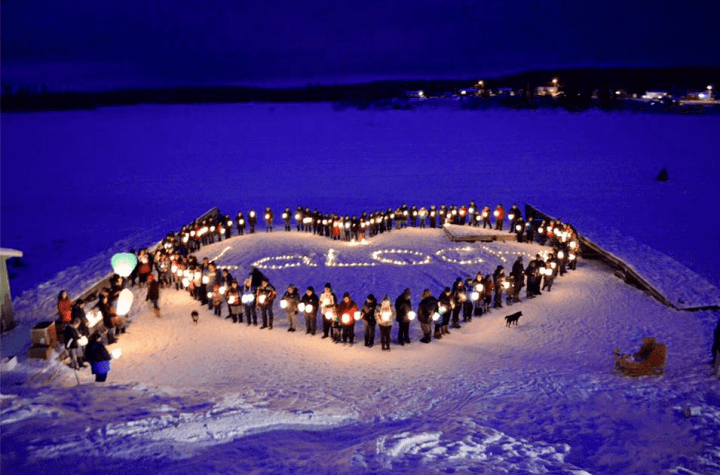Dr. Sara Dungavell envisioned herself working in an inner city or someday providing psychiatric care to rural residents.

That is until Jan. 22, 2016, when a mass school shooting happened in the village of La Loche, Sask. She said she was terrified at the thought of boarding a flight to the north but decided to make her first trip several months after the shooting.
“Hearing about how alone the community felt and how hurt they were by this happening, I felt like I needed to put my own comfort aside and see what services I could offer and how helpful I could be,” Dungavell said.
What she has learned over the last two years is just how difficult it can be to make a difference in a community that is still left to fend for itself.
After vows that more mental-health supports would be provided to the village, some say they have gone very much unfulfilled, following the tragedy.
- Toronto Pearson gold heist: Ontario man arrested at airport after arriving from India
- ‘FLiRT’ COVID-19 subvariant dominant in Canada. What to know about the strain
- Capital gains changes could have ‘irreversible’ effects, business groups warn
- Will Canada get temporary visa cuts? Ottawa, provinces could decide in meet
The sentiment includes remarks from the judge who sentenced the young man to life in prison on May 8, 2018 for the crime.
“They have been abandoned. They have been let down. Pretty much to a person, what I heard, was that counselling services aren’t available,” judge Janet McIvor said.
Dungavell said it was nearly a year before she started seeing people directly impacted by the school shooting who finally prepared to reach out for help.

That’s not to say she wasn’t busy during the first 12 months of visiting the north — there was a backlog of patients with a multitude of mental-health needs waiting to be seen.
“People who hadn’t been seeing a psychiatrist for their chronic depression, for their bipolar or their schizophrenia.”
She is believed to be the only adult psychiatrist in the province that is flown in on a regular basis to treat patients in parts of the north. Mental-health needs can be triggered by not just one massive tragedy but a lifetime of trauma.
“We’re talking about inter-generational trauma, experiences of colonialism, not adequate access to housing, education, other social services, inadequate access to medical treatment and this has been ongoing for people who are living in the north,” Dungavell explained.
For two years, once a month, she has made trips to northern communities. She is expecting her third child, however, and says she plans on taking a break.
The province said there are more psychiatric supports based out of Prince Albert and Saskatoon:
- Two child/adolescent psychiatrists in Saskatoon who are in La Ronge in person on a monthly basis with follow-up by Telehealth;
- Six adult psychiatrists based in Prince Albert, some of whom provide services to northern communities;
- One child psychiatrist based in Prince Albert and one additional child psychiatrist to be based in the city who is currently being recruited.
Since the tragedy, mental health and addictions services have added two staff members. According to Saskatchewan sPremier Scott Moe, there are now double the number of mental-health workers in the village and counselling services at the school but residents who were raised there say it’s not enough.
“Every facet of life affects someone’s mental well-being whether that be positive or negative,” former village administrator Janine Boucher said.
“So making the assumption that health-care providers have all the answers to an extremely complex issue is not only wrong, it’s completely inappropriate.”
Government officials said they now plan on paying the village a visit to see what else can be done.
Dungavell is hopeful there is light at the end of the tunnel — things are not entirely hopeless for La Loche. She said the people of the north are fighting so hard for a life worth living but need help to overcome hurdles.
“We need to make some very big commitments in terms of what we’re changing to make an effective change against the sea of despair.”





Comments